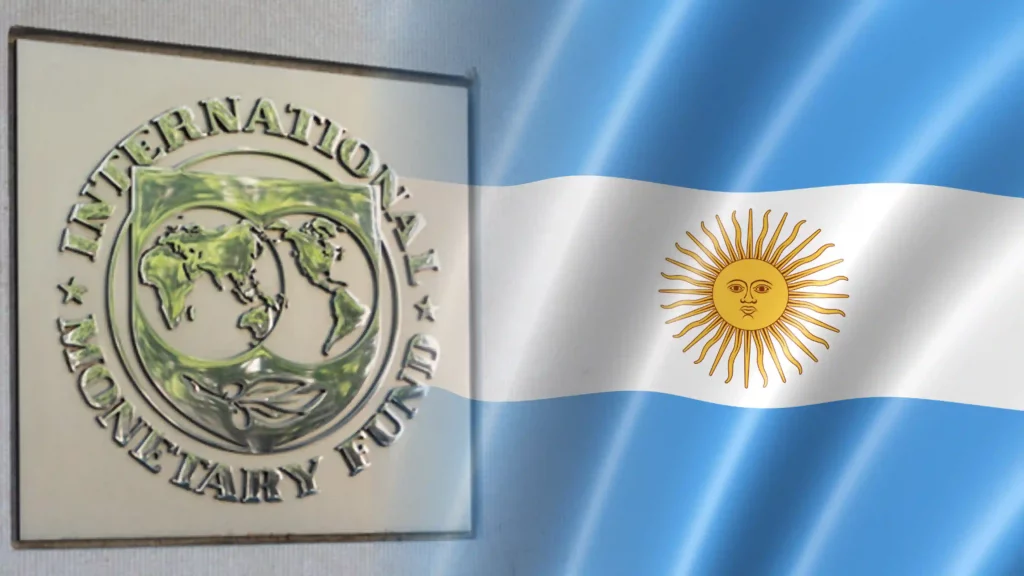In 2018, Argentina struck a deal worth $57 billion with IMF which failed and was replaced with a new $44 billion program last year
A $44 billion dilemma is looming between Argentina and the International Monetary Fund with delegates from both sides expected to meet to get financial assistance. The talks would potentially restore the country’s debt deal which is also critical in avoiding default on debt payments. In 2018, Argentina struck a deal worth $57 billion with IMF which had failed and was replaced with a new $44 billion program last year.
The country had also been struggling with inflation and currency rises for years now. The economy minister of Argentina Sergio Massa is set to reach Washington this week to hold talks to boost the International Monetary Fund’s disbursements and ease the economic targets attached to the deal. This move would be watched by traders and investors alike.
The South American country is at risk of missing debt payments as the economy struggled with its key products of soy and corn due to a major drought. The net foreign currency reserves are estimated to be on the negative side and have a due of $2.7 billion this month alone. Analysts estimate that the negotiation has stagnated and has yet to see significant progress. According to an economy ministry source, there is a potential sign of hold-ups as Massa’s trip could be delayed based on the progression of virtual talks, reports Reuters.
Rising Inflation Pressure
The pressure is rising in Argentina as the inflation rate hits 114%. The rising rate hits the spending power and salaries. Reserves are collapsing, with the number of people living below the poverty line increasing and the blame goes to the stiffness related to IMF. The streets are filled with protests against the government’s mishandling of the economy. “We must change these economic policies, we must break with the dependence on the IMF,” stated Hugo Godoy, marching on Friday in Buenos Aires as part of protests. The government was hoping to bring over $10 billion in IMF spending organised for this year.
However, this is a hard pass to agree on as measures are tighter due to the upcoming October elections where the current government could face a defeat. Investors are also paying attention to the hints from IMF discussions. Economists also analyse that receiving funds would be extremely critical to financial burdens at this point. The hope of having progress with the IMF and local debt exchanges has jogged up Argentina’s dollar-denominated bonds from ‘high-20 cents’ on the dollar in May to mid-30 cents currently, reports Reuters. The country had been using local debt to push back peso-denominated repayments. They also extended a currency swap lion with China.
The country also faces a lot of obligations with private foreign creditors in the coming year. As the debt figures rise, many fear that even the IMF help would not be sufficient to solve the country’s monetary problems for long. The Institute of International Finance, a banking trade concern located in Washington stated that anticipating disbursements could be a ‘damage-control’ solution till the current government’s term end in December. As a tiny ray of hope, Argentina’s inflation cooled down in the month of May for the first time in six months and fell below the expert estimates. The inflation rate still stood at 7.8% for the month.
When we look at inflation, it is still at a very high rate, but the fact that it has cooled down a bit gives some sort of hope for the economy by removing some pressure. The economy is currently in one of its worst conditions with more than 40% living below the poverty line.
